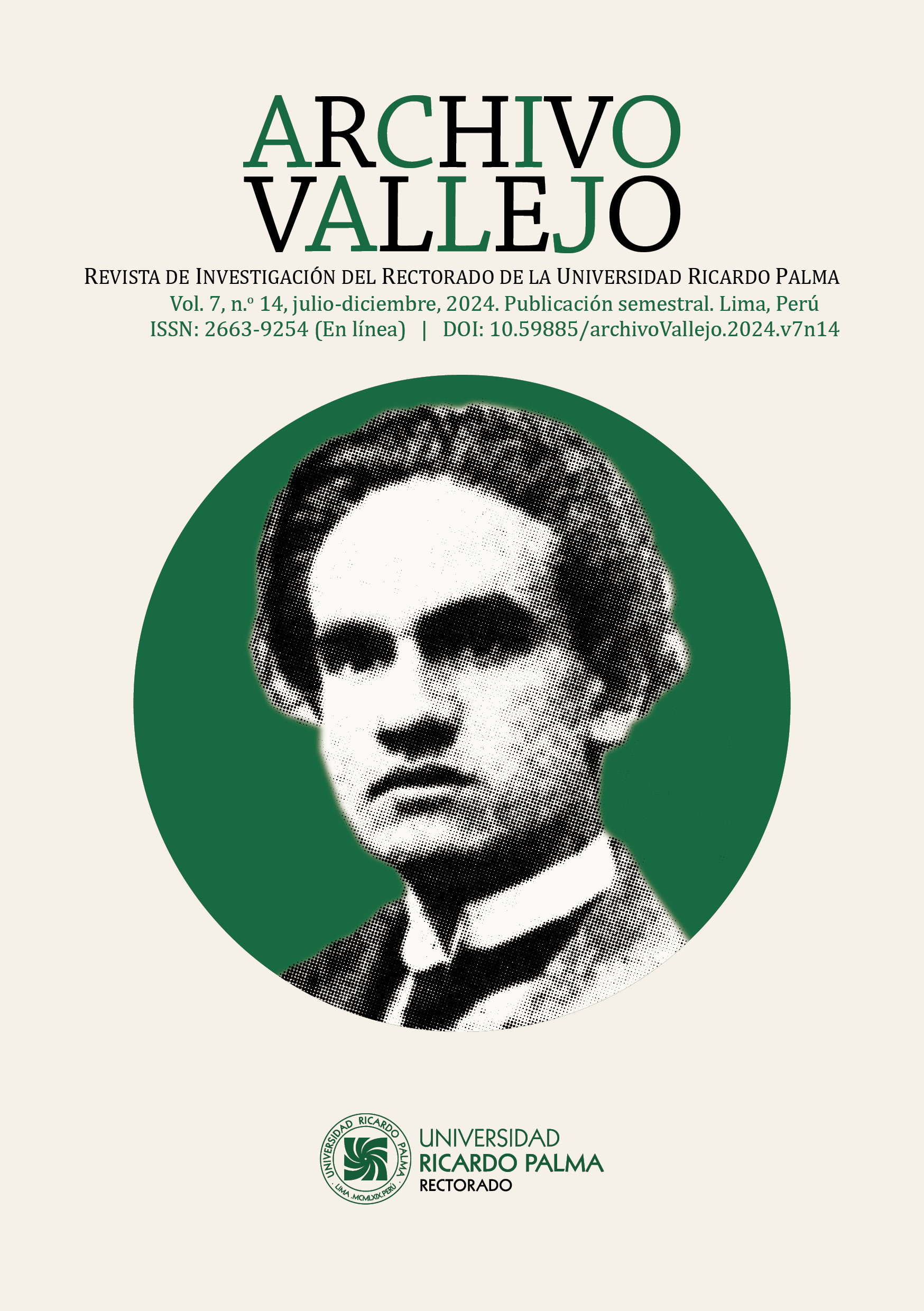The enigma of literature: artificial intelligence, critical conscience and innovation
DOI:
https://doi.org/10.59885/archivoVallejo.2024.v7n14.02Keywords:
literature, artificial intelligence, critical consciousness, innovation, humanismAbstract
This paper explores literature and art’s role in human evolution, highlighting their permanence and impact through time. From the origins of language to its current digital transformation, human capacity remains a bulwark against the homogenising tendencies driven by artificial intelligence. It is therefore important to warn against the risk of reducing language to a mere vehicle of information, which could threaten freedom and creation, essential for a critical conscience. The tension between technological progress and the preservation of humanist values is addressed through an analysis that evokes thinkers such as Éric Sadin and Karl Marx. In this way, it is a call to resist the imposition of authoritarian control, which simultaneously advocates the vindication of creative plurality, chance, and affectivity, as motors of new forms of existence.
References
Arguedas, J. M. (1972). Katatay y otros poemas. Instituto Nacional de Cultura.
Berardi, F. (2019). La segunda venida: Neorreaccionarios, guerra civil global y el día después del Apocalipsis. Caja Negra.
Chomsky, N. (2023 [2016]). Who rules the world? (J. Guerrero, Trad.) New York Review; ePub.
Costanzo, T. (20 de julio de 2023). En el rincón oculto del jardín [Publicación]. Facebook. https://www.facebook.com/share/p/ank7eyPNC7iWxFAg/
Creeley, R. (2006). The Collected Poems (1975-2005). University of California Press.
Crevier, D. (1996). Inteligencia artificial. Acento.
Ferreiro, E. (2013). El ingreso a la escritura y a las culturas de lo escrito. Siglo XXI.
Freud, S. (2010 [1929]). El malestar de la cultura. Alianza Editorial.
Fromm, E. (2003). El humanismo como utopía real. Paidós.
Goldsmith, K. (2014 [2011]). Escritura no-creativa. Sur Ediciones.
Iser, W. (1987). El acto de leer. Taurus.
Lauchlin, R. B. (2010). Crímenes de la razón: El fin de la mentalidad científica. Katz.
Lenin, V. I. (1960). Obras escogidas (t. I). Ediciones en Lenguas Extranjeras.
Mandel, E. (1972). El capitalismo tardío. Era.
Maris, B. (2022 [2010]). Capitalismo y pulsión de muerte. Herder.
Marx, K. (1867). El capital: Crítica de la economía política. Amauta Revisa socio-política. http://amauta2.free.fr/teoria/marx_engels/el_capital_1/capitulo_13.htm
Marx, K. (1978). Tesis sobre Feuerbach. En Ludwig Feuerbach y el fin de la filosofía clásica alemana. Progreso.
Sadin, É. (2020). La inteligencia artificial o el desafío del siglo. Caja Negra.
Sadin, É. (2013). La humanidad aumentada: La administración digital del mundo. Caja Negra.
Searle, J. (1995). La construcción de la realidad social. Paidós.
Turing, A. (1950). Inteligencia y maquinaria computacional. Mente, LIX(236).
Wajcman, G. (2001). La obra de arte. Amorrortu.
Downloads
Published
How to Cite
Issue
Section
License
Copyright (c) 2024 Miguel Ángel Huamán Villavicencio

This work is licensed under a Creative Commons Attribution 4.0 International License.
Los contenidos publicados en la revista están bajo una licencia CC-BY 4.0, la cual permite:
- Compartir, copiar y redistribuir el material en cualquier medio o formato.
- Adaptar, remezclar, transformar y construir a partir del material para cualquier propósito, incluso comercialmente.
Bajo los siguientes términos:
- Atribución. Usted debe dar crédito de manera adecuada, brindar un enlace a la licencia, e indicar si se han realizado cambios. Puede hacerlo en cualquier forma razonable, pero no de forma tal que sugiera que usted o su uso tienen el apoyo de la licenciante.















